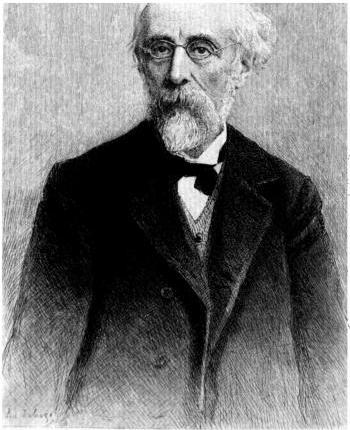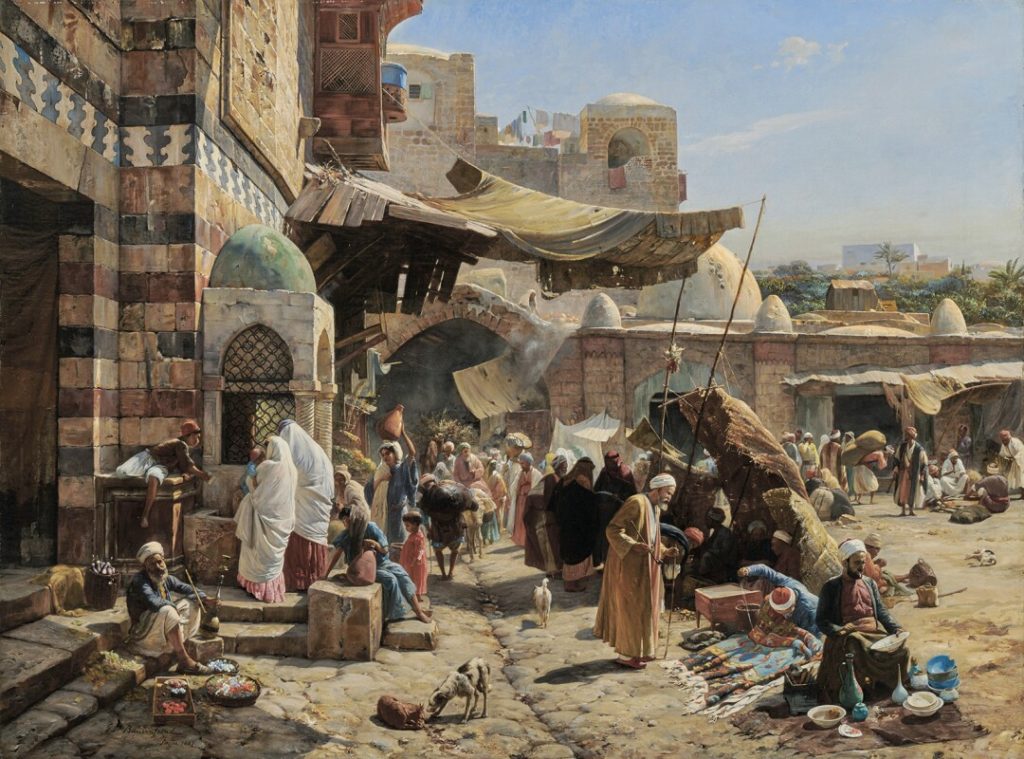
The image of Orientalism has become tarnished in the Arab world. Yet European scholars, whether they were Orientalists or not, applied the same scientific methodology to their own heritage before applying it to ours.
BY HASHEM SALEH
I MEAN OF COURSE academic Orientalism, not the superficial, politicised Orientalism associated with colonial administration from the 19th century to the middle of the 20th century. The greatest error committed by modern Arab intellectuals in fighting Orientalism was that they did not make a sufficient distinction between these two forms of it.
For the fact remains that what irritated him most of all were neo-traditionalists and extremists and not the West nor Orientalism as a whole. Edward Said, after all, was no fundamentalist! We must therefore not draw false conclusions from his book Orientalism. We say this despite some of the errors and hasty judgements that issued from it due to the fact that he was not a specialist in Islamic studies. But in the final analysis he was a man of deep humanitarian instincts and he represents a brilliant cultural bridge between the Arab and Western worlds.
In order to understand how this terrible clash between traditionalist Muslims and Orientalists occurred[2] we should place the problem in its broader, wider theory. We should understand that the philologico-historical method was applied first of all to the Judaeo-Christian heritage before being applied subsequently to the Islamic heritage by the major Orientalists – scholars of the likes of Goldziher, Noeldeke, Schacht and many others. So European scholars, whether they were Orientalists or not, applied this same scientific methodology to their own heritage before applying it to ours.
The greatest error was that they did not make a distinction between the two forms of Orientalism
Their aim was not to destroy our heritage any more than it was to destroy their own! The only thing that scholarship destroys is ignorance and false conceptions. Scholarship builds, constructs and opens up wider horizons. But it is also at times forced to tear down erroneous notions before it can build or erect correct ones. The perceptions that traditional believers have concerning their religious heritage are in most cases reverential and not historical. For Orientalist scholarship to attain to a true picture of Islamic heritage it must first deconstruct these sanctified, fantasy conceptions about the past inherited over centuries. This is the reason for the battles that have broken out between them and the fundamentalist authorities and Muslim shaykhs.
So let us dispense entirely with fighting against scholarship in the Arab and Islamic world! Let us stop opposing the course of history! The Islamic legacy must be subjected to the historical critical method in the same way that the Judeo-Christian heritage was. Such a development is an unavoidable one if we wish to catch up with the times and shed our backwardness and chronic historical decline. One might add that these erroneous perceptions on heritage, religion and faith were inculcated by traditional school syllabuses all over the Islamic world, and it is these that have spawned millions of extremists and terrorist jihadists. The only way to confront these movements is to dismantle their historically deep-rooted theological perceptions that dominate their minds.
It is well known that it is an antiquated religious theology – or takfīrī jurisprudence – that is lending divine legitimacy to these extremist movements and bestowing upon them great self-confidence and unparalleled resilience. Were it not for this they would never have dared undertake all these random bombings that scythe down dozens, hundreds or even thousands of citizens, as took place on the morning of September 11th. Consequently, they must be fought on their own ground, that is, on the ground of religious thought. Otherwise we will never be rid of them and their rampant plague that has now attained global dimensions. Islam, as a great world religion, deserves a different fate: it merits a different view and an enlightened understanding, one of renewal.
But, in return, it behoves our Western counterparts to acknowledge that this obscurantist fundamentalism has also existed amongst themselves. Europe suffered from it during the trials of the Inquisition and the Catholic-Protestant religious wars. Europe was not freed from Papal, Roman Catholic church terror until the Enlightenment philosophers appeared on the scene to courageously and forcefully confront it and its bigoted erroneous understanding of Christianity and the message of the Gospel.
This entire procrustean sectarian theology was dismantled by John Locke, Lessing, Voltaire, Rousseau, Diderot and the Encyclopaedists, by Kant, Hegel, Nietzsche and others. This is how it was brought down in the West while in general it has yet to be brought down in the Arab or Islamic world. Until now no major Enlightenment movement has appeared amongst us on the lines of that which appeared in Europe in the 18th and 19th centuries.
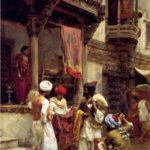
Suggested Reading
Doubtless there have appeared attempts at enlightened resurgence here and there, but to this day they have not been sufficient nor as radical as hoped for. But the future gives us promise since there are some intellectuals in the Arab world who have understood the parlousness of our situation and begun to research new diagnoses and solutions. Our hope lies with them. By ‘intellectuals’ I mean free critics, not the demagogic intellectuals who collude openly or implicitly with antiquated, sectarian, fundamentalist thinking.
Despite the fact that up to now these latter still form a numerical majority, their starting points are being exposed and they are yielding ground more and more. Enlightened critical intellectuals are fortunately more and more in evidence over all the Arab world. In any case the intellectual battle between the two parties is inevitable and unavoidable. It is the same battle that took place between Voltaire and his opponents in the 18th century, or Victor Hugo and his opponents, or Ernest Renan and his opponents in the 19th century. It is a battle between enlightened intellectuals and fundamentalist intellectuals. I have already dedicated an entire book to this subject. [3]
Are we aware that the Catholic Church fought against the historical critical method with the same vehemence that Arab conservative trend fights against Orientalism? Here we may notice that comparative fundamentalism offers us some brilliant insights. The attack on Orientalism by traditionalist shaykhs of Islam differs not a whit from the attack of the Catholic Popes and their supporters against Ernest Renan and all the other scholars who applied the historical methodology to early Christianity and to the person of Jesus. They considered their work profanity and disbelief and a violation of Christian sanctities.
Consequently we should not make any sectarian or racist conclusions against Islam and Muslims on the basis of the difficult historical conditions that these are living through today. Extremists in the West should not exploit this to disfigure our image and the image of our monotheistic religion. Islam will alter its condition when modernity triumphs, just as the Catholic Church altered its position following Vatican II. It is all just a question of time. Despite all the obstacles, Muslims are marching on the road to enlightenment and progress. We might make a comparison here between what the Papal authorities did to the French scholar Alfred Loisy [4], who applied the historical method to the Gospel, and what Al-Azhar and the rest of the conservative scholars did to Taha Hussein after his book On Pre-Islamic Poetry came out. The reaction of Islamic fundamentalists to the historical method is in no way different from the reaction of Christian fundamentalism, as we mentioned.
[1] See his text published in the French Le Monde diplomatique a few weeks before his death: Edward W. Said: ‘L’humanisme, dernier rempart contre la barbarie’. Le Monde diplomatique, September 2003.
[2] See the attacks by major Islamic figures such as the Egyptian Shaykh Muhammad al-Ghazālī and Shaykh Mustafā al-Sūri on the famous Orientalist Goldziher for his applying the philological historical methodology to the Qur’ān and the Prophetic hadith. They considered this to be an act of enmity against the sanctity of the heritage and an attempt to destroy it. This took place after the Second World War but at more or less the same time, or shortly before, a similar attack was made against Taha Hussein and Muhammad Hussein Haykal for the same or similar reasons. See also the attack by ‘Umar Farrūkh and Anwar al-Jundī and Bint al-Shātī and Malek Bennabi on Orientalism. In general such attacks on Orientalism are innumerable in traditionalist circles, and in some cases get to the point of saying that Orientalism is carrying out what the Crusades failed to do! This provides the greatest indication of the level of traditionalist Muslim fear at the application of historical and scholarly methodologies to the heritage. The same fear was also in evidence among traditionalist Christian and Jewish circles. Consequently the three fundamentalisms – Jewish, Christian and Islamic – refused to allow the entry of science into the arena of the heritage and of sanctities. It may knock on their door but may never enter. Woe betide anyone who enters therein and desecrates such sanctities!
[3] See معارك التنويريين والأصوليين في أوروبا (‘The Battles of Enlightenment Scholars and Traditionalists in Europe’), Al-Saqi, in cooperation with رابطة العقلانيين العرب, Beirut, 2010.
[4] Alfred Loisy (1940-1857) – a French Catholic theologian who in 1902 provoked a crisis of modernity in the Catholic Church due to his application of the historical method to the Holy Book in both its Old and New Testaments, that is the Torah and the Gospel. The Vatican considered this to be an intolerable scandal and an attempt on true Christian faith. For this reason they excommunicated him, expelled him and in 1908 barred him from educational work. But the liberating Vatican II Council restored his reputation in 1965 and acknowledged the error that the Church had committed against him. This way, he emerged victorious barely a quarter of a century following his death. When will traditionalist Muslims understand that the historical methodology will be applied also to our own holy texts sooner or later? It will not necessarily damage the faith since Alfred Loisy remained a believer and did not become an atheist after engaging in historical research on the origins of the Gospel and the Torah. Thus historical scholarship will take us from the narrow, fanatical faith to a renewed, emancipated, broad-minded faith.
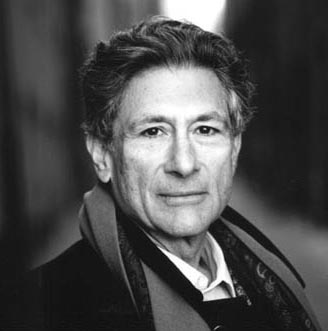
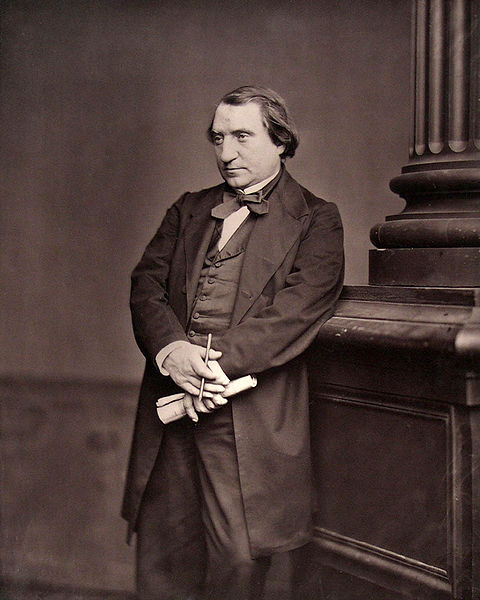
Ernest Renan: attacked by the Pope for applying historical methodology.
